Maintaining the cleanliness of semi-truck trailers is not just a matter of aesthetics; it plays a vital role in ensuring compliance with safety regulations, preserving equipment longevity, and promoting a professional image. In this comprehensive guide, we will delve into the best practices for cleaning semi-truck trailers, addressing different cleaning methods, tools, and frequencies required for various types of trailers. Let’s navigate this topic meticulously.
Why Keeping Your Semi Truck Trailer Clean Is Essential
1. Safety Compliance
Cleaning a semi truck trailer regularly helps in adhering to safety standards. Dirt, debris, and grime can obstruct important features such as lights and reflectors, leading to hazardous driving conditions.
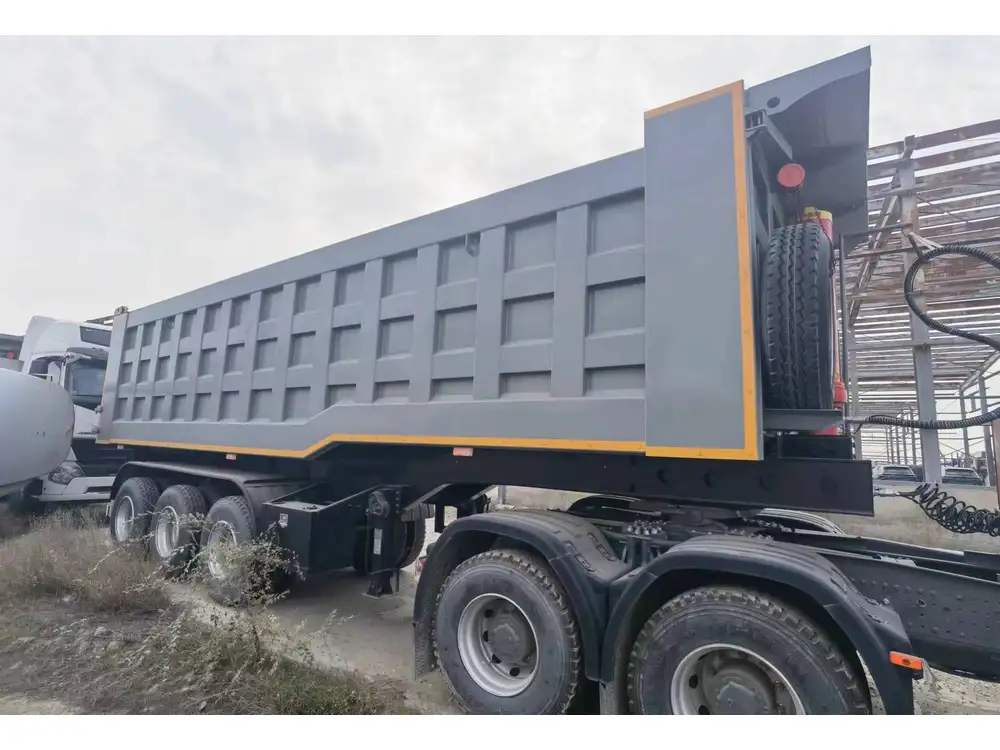
2. Preserving Equipment Integrity
A well-maintained trailer is less prone to rust and corrosion. Regularly removing contaminants can significantly extend the longevity of your investment.
3. Creating a Professional Image
A clean trailer reflects the professionalism of your business, positively influencing client perceptions and trust.
4. Enhancing Fuel Efficiency
A dirty trailer can negatively impact aerodynamics, leading to increased fuel consumption. A clean surface reduces drag, optimizing fuel usage.

Essential Tools and Materials for Cleaning
| Cleaning Tool | Purpose |
|---|---|
| High-pressure washer | Removes stubborn dirt and grime |
| Soft-bristle brushes | Cleans delicate surfaces without scratching |
| Degreaser | Breaks down oil and grease |
| Cleaning cloths and sponges | For finishing touches and detailing |
| Mild soap | General cleaner for regular upkeep |
| Water bucket | For manual washing |
| Microfiber cloth | Ideal for drying and polishing |
| Protective gloves | Ensures safety while handling chemicals |
Step-by-Step Process on How to Clean a Semi Truck Trailer
Step 1: Preparation
Before diving into the cleaning process, it’s crucial to prepare adequately:
- Choose a Suitable Location: Select a spacious outdoor area or a designated washing bay, ensuring proper drainage for waste water. If possible, avoid cleaning in direct sunlight to prevent soap streaks.
- Inspect for Damage: Check for dents, rust, or any damages that may require repair before cleaning.
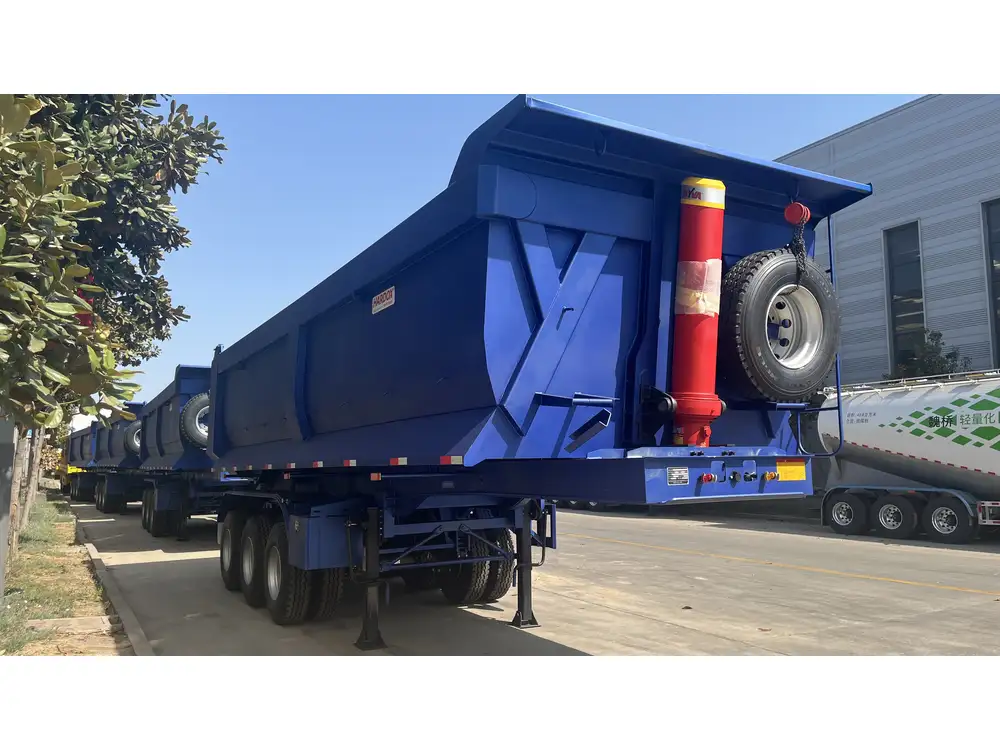
Step 2: Initial Rinse
Use a high-pressure washer to perform an initial rinse:
- Start from the top and work your way down. The force of the water will remove loose dirt, dust, and debris, making the subsequent cleaning steps more effective.
Step 3: Apply Detergent
Choosing the Right Detergent
Select a suitable cleaner based on the type of contaminants:
- For general grime, a mild soap or trailer-specific cleaner suffices.
- For grease and oil deposits, a strong degreaser may be necessary.
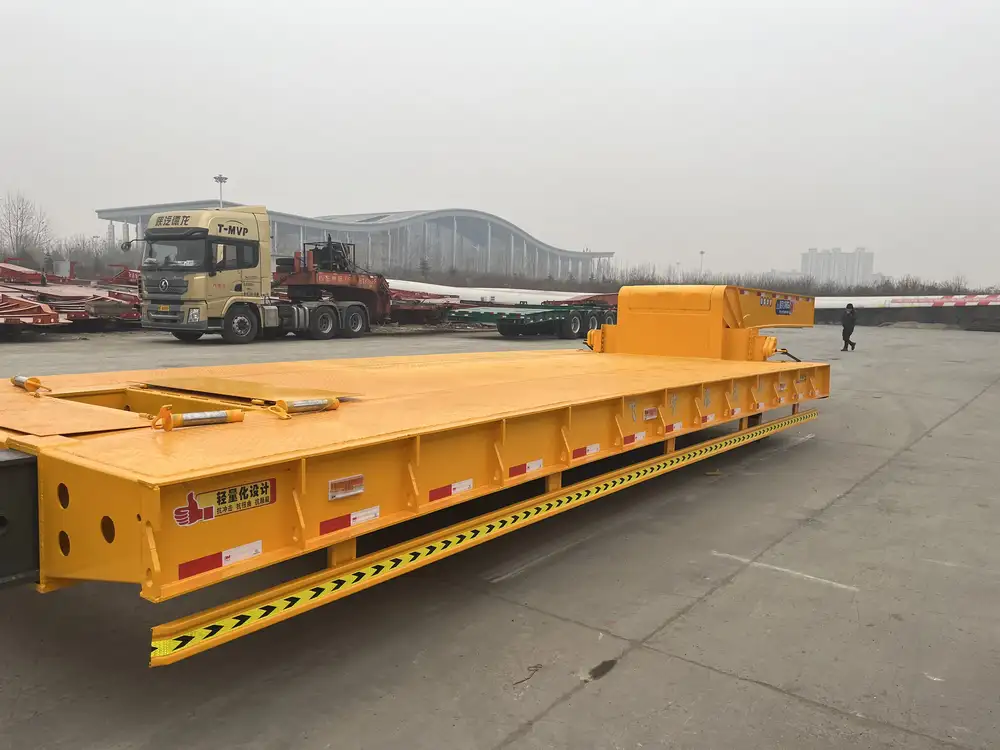
Application Method
- Mix the Cleaner: Following the manufacturer’s guidelines, dilute the cleaning product with water.
- Apply Evenly: Use a soft-bristle brush or sponge to apply the cleaner uniformly. Work in sections to ensure thorough coverage.
Step 4: Scrubbing
Focus on scrubbing key areas:
- Flat Surfaces: Utilize a larger scrubbing brush for flat areas.
- Wheel Wells and Underbody: These areas often accumulate dirt. Use a small brush for intricate spaces.
Step 5: Final Rinse
After scrubbing:
- Rinse off all detergent residues using a high-pressure washer. Ensure that no cleaning products remain as they could cause streaks or damage the paint.
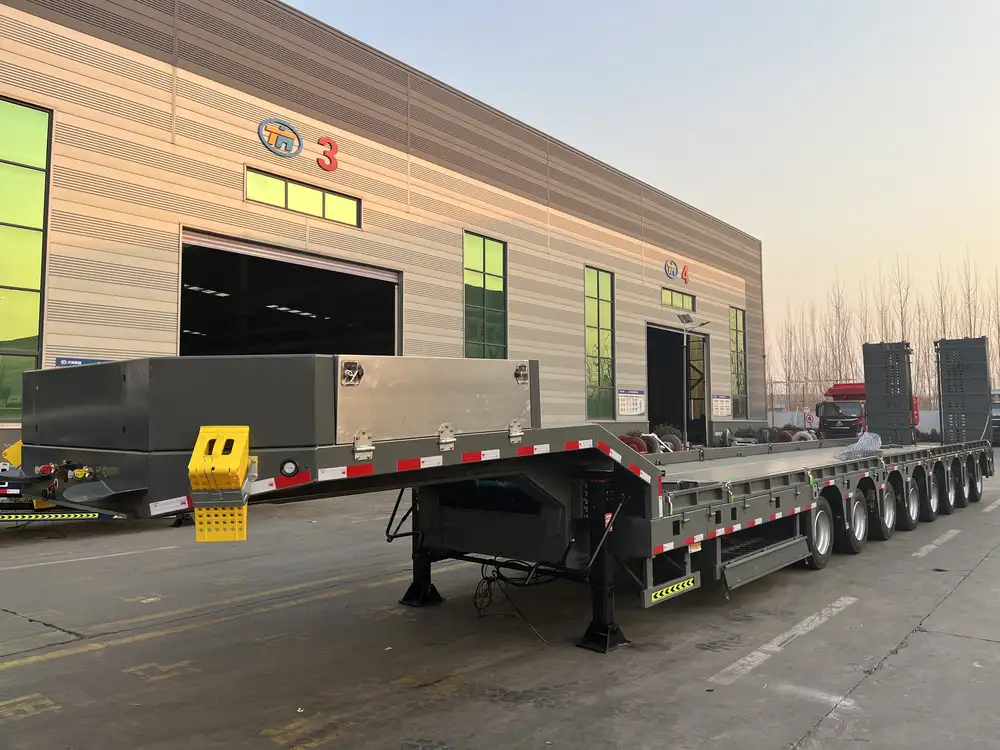
Step 6: Drying and Polishing
To prevent water spots and enhance shine:
- Dry with Microfiber Cloths: Wipe down all surfaces meticulously.
- Optional: Use a Wax or Polish: Applying a protective wax can add a layer of shine while safeguarding the surface from future dirt accumulation.
Step 7: Interior Cleaning (if applicable)
For enclosed trailers, interior cleanliness is paramount:
- Remove any debris or cargo remnants.
- Sweep or vacuum the interior.
- Wipe down surfaces with a mild cleaner.
Frequency of Cleaning
To ensure your semi-truck trailer remains in optimal condition, follow a cleaning schedule based on usage:
- After Each Haul: For trailers carrying perishable goods or sensitive cargo.
- Weekly: For daily drivers that travel significant distances.
- Monthly: For trailers used less frequently or those that haul general freight.
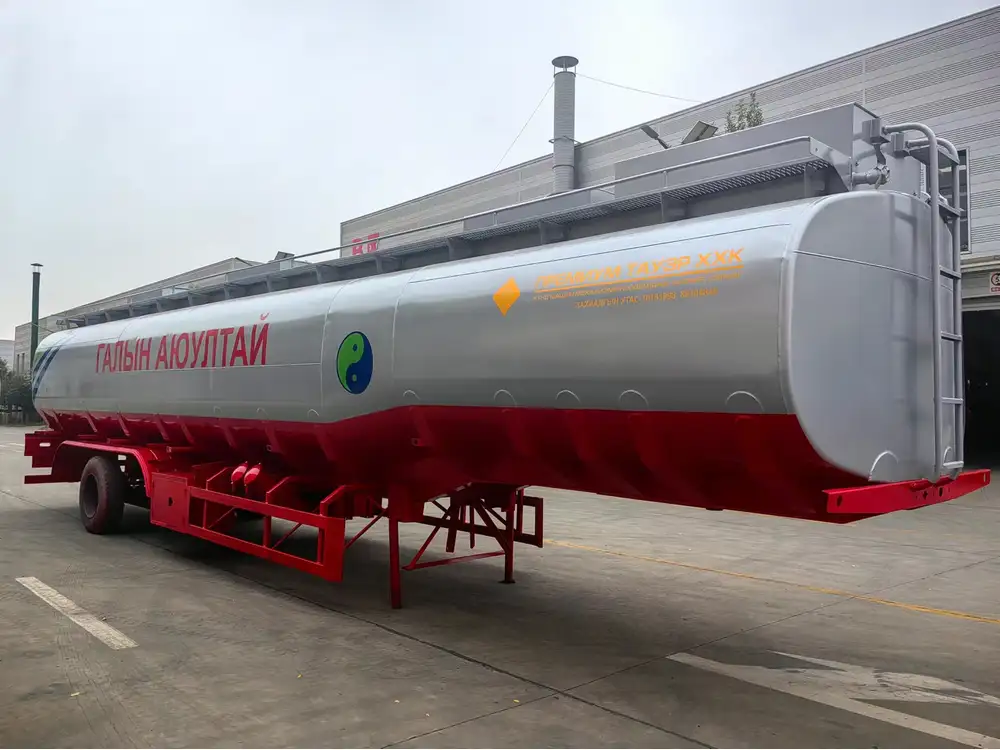
Special Considerations for Different Types of Trailers
1. Flatbed Trailers
Flatbed trailers are prone to dirt and debris:
- Consider protective tarps during transport to minimize grime exposure.
- Use a power washer with an industrial setting to remove tough stains.
2. Enclosed Trailers
These require attention to both the interior and exterior:
- Maintain the interior as per cargo type (e.g., food-grade trailers).
- Reinforce cleaning processes with disinfectants if transporting sensitive items.
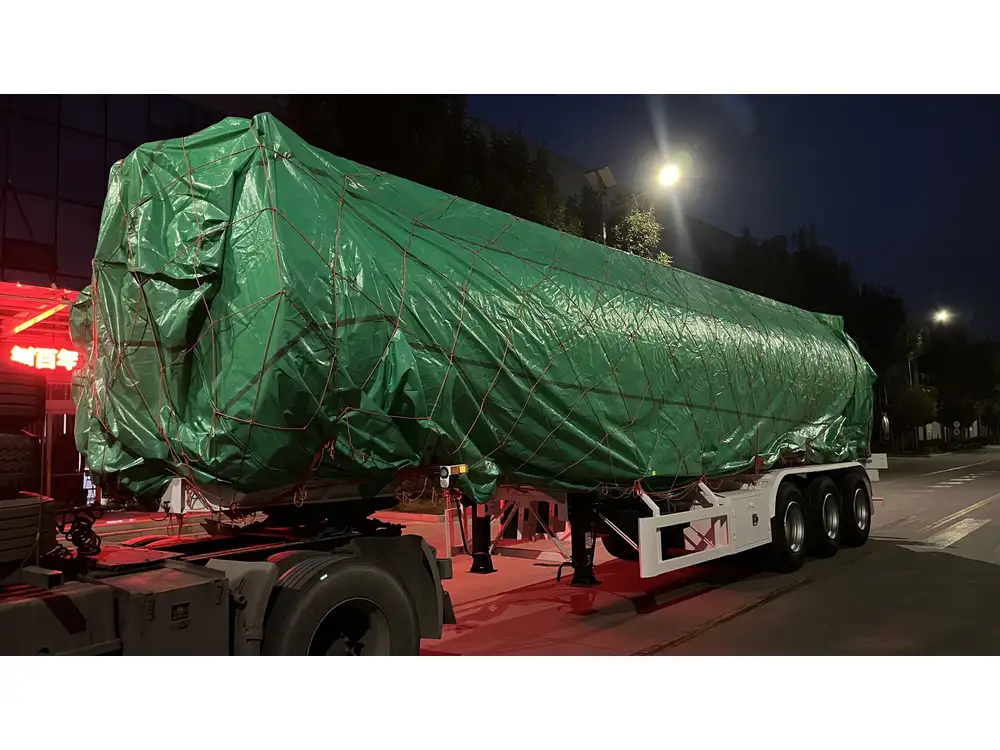
3. Refrigerated Trailers
The cleanliness of reefer trailers is crucial:
- Regularly clean the evaporator coils to ensure efficiency.
- Sanitize interiors frequently to avoid contamination.
Environmental Considerations
When cleaning, always consider:
- Use of Eco-Friendly Products: Choose biodegradable soaps and cleaners to minimize environmental impact.
- Wastewater Management: Ensure that wastewater is disposed of responsibly, following local regulations.
Common Mistakes to Avoid
- Neglecting Hard-to-Reach Areas: Ensure every nook and cranny is cleaned.
- Using Harsh Chemicals: Strong chemicals can damage surfaces, always test in a small area first.
- Not Following the Recommended Cleaning Frequency: Sticking to a schedule helps maintain cleanliness without major efforts.
- Ignoring Interior Spaces: Don’t overlook the importance of a clean cargo area.

Additional Tips for Maintaining a Clean Semi-Truck Trailer
- Regular Inspections: Frequent checks for dirt accumulation help inform timely cleaning.
- Gentle Approach with Materials: Utilizing soft brushes and microfiber cloths prevents scratches.
- Fleet Management Systems: Implement technology to schedule and track cleaning routines.
Conclusion
In a world where first impressions matter significantly, ensuring that your semi-truck trailer is clean cannot be overstated. Implementing a consistent cleaning routine not only enhances safety and compliance but also extends the life of your equipment and reflects a commitment to quality and professionalism in your business. By following the steps outlined in this guide, you can maintain your semi-truck trailer in pristine condition – ready to tackle the road ahead.
Cleanliness is an investment in your operational efficiency, reliability, and overall business reputation. By attending to the details outlined here, you will stand out in a competitive landscape, ensuring that your trailers not only perform well but also look the part every mile of the way.



